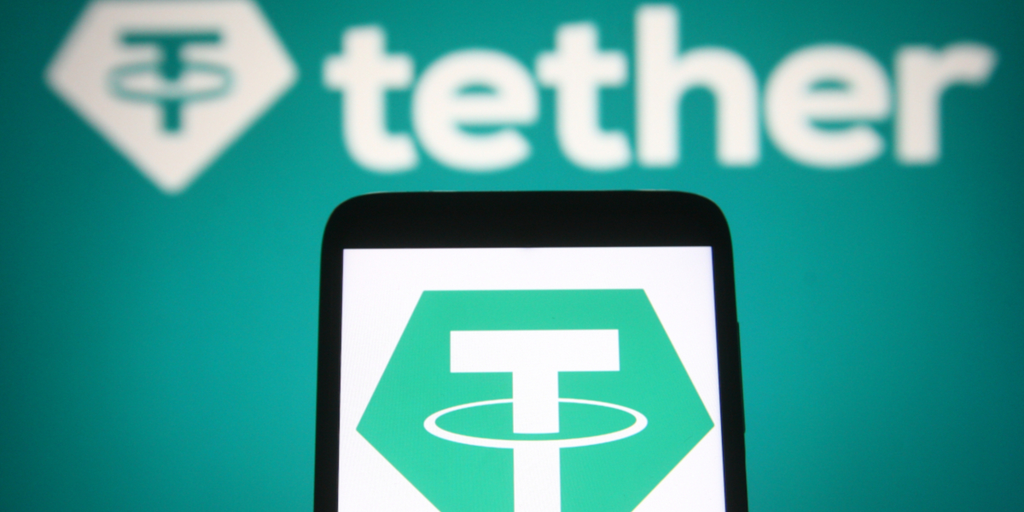
With all the talk about how stablecoin legislation in the United States may or may not negatively impact foreign issuers, you might expect the biggest (and most controversial) issuer on the planet to be feeling the heat. But that’s far from the case, according to Tether CEO Paolo Ardoino.
In fact, Tether has no real issue with its flagship stablecoin, USDT, being banned in the United States by new regulatory legislation, Ardoino told Decrypt on Friday.
To circumvent the potential issue, Tether is actively considering creating a new U.S.-domiciled stablecoin that will comply with pending American stablecoin laws, Ardoino said.
“We believe that our main stablecoin is perfected for emerging markets, but we can craft a payment stablecoin that works for the U.S.,” Ardoino said. “We need to have two products with two different value propositions.”
Stablecoins are digital assets that are typically pegged to the U.S. dollar, designed to hold a steady value, and allow for cryptocurrency traders to enter and exit positions without accessing dollars directly. They are far and away the most traded digital assets in the market, accounting for tens of billions of dollars in volume every day.
As parallel stablecoin bills race through the House and Senate to floor votes, questions have abounded over the fate of Tether, by far the market’s largest player.
As currently written, both the House’s STABLE Act and the Senate’s GENIUS Act would require foreign stablecoin issuers like Tether—which is headquartered in El Salvador—to comply with the stringent anti-money laundering requirements of the Bank Secrecy Act, and vigorous audits of their reserves.
Tether, the $144 billion stablecoin behemoth, has never submitted to a full financial audit, and critics and competitors have argued the company would exit the U.S. altogether if it had to comply with intricate anti-terrorism and anti-money laundering rules. Critics have, for years, also doubted whether Tether actually has the money it says it does to back each USDT token—a criticism the company has vigorously combatted over and over again.
Ardoino maintains that Tether has “the highest level of compliance” among its competitors when it comes to cooperation with law enforcement. He added the company is currently in conversations with multiple “Big Four” accounting firms about a full audit, but that the firms have so far been “rightfully” cautious about engaging with the novel stablecoin market.
And those theories that Tether would stay out of the U.S. because of new stablecoin laws? Ardoino says they reek with “the smell of desperation” of Tether’s competitors, who “were betting everything” that the company wouldn’t come play ball in the United States.
“Here I am,” Ardoino said Friday from the Manhattan offices of Cantor Fitzgerald. The Wall Street firm, run by U.S. Commerce Secretary Howard Lutnick and his family, custodies much of Tether’s U.S. Treasuries reserves.
And yet, despite his recent stateside show of force, Ardoino does not appear interested in making the necessary adjustments to allow USDT to be issued freely in the U.S.. Overall, the Tether CEO doesn’t seem too fussed with the state of American stablecoin legislation. He says he is more focused on the emerging markets where USDT has become such a powerhouse in recent years.
“We don’t think there is anything particularly problematic,” Ardoino said of the current content of pending U.S. stablecoin legislation.
The Tether CEO added he is optimistic, though, that USDT will remain listed on U.S. secondary markets, which he says are “very important for remittances.” As currently written, the Senate’s stablecoin bill would only ban non-compliant issuers from offering tokens directly to American users. The House bill goes farther, by banning the trade of such noncompliant tokens by custodial intermediaries like Coinbase, two years after the law goes into effect.
At some point during the coming months, that competing language will need to be reconciled before a final bill is—should it receive the needed votes—placed on President Donald Trump’s desk for signature.
It appears, though, that neither bill as written would explicitly ban the trade of USDT on non-custodial DeFi exchanges like Uniswap or Jupiter.
As jurisdictions around the world begin instituting stablecoin-specific regulations, Tether’s business has been impacted in certain markets. Earlier this week, Binance delisted USDT from its European sites, given the token does not comply with the European Union’s new requirements for stablecoin issuers.
Ardoino said that, similar to its burgeoning U.S. strategy, Tether has invested in multiple European companies launching grassroots dollar- and euro-backed stablecoins compliant with EU regulations.
But the executive said he pictures a future long-term reality in which USDT is not a major player in either the United States or Europe.
Daily Debrief Newsletter
Start every day with the top news stories right now, plus original features, a podcast, videos and more.
https://decrypt.co/313442/tether-usdt-us-laws-needs-new-stablecoin-ceo








